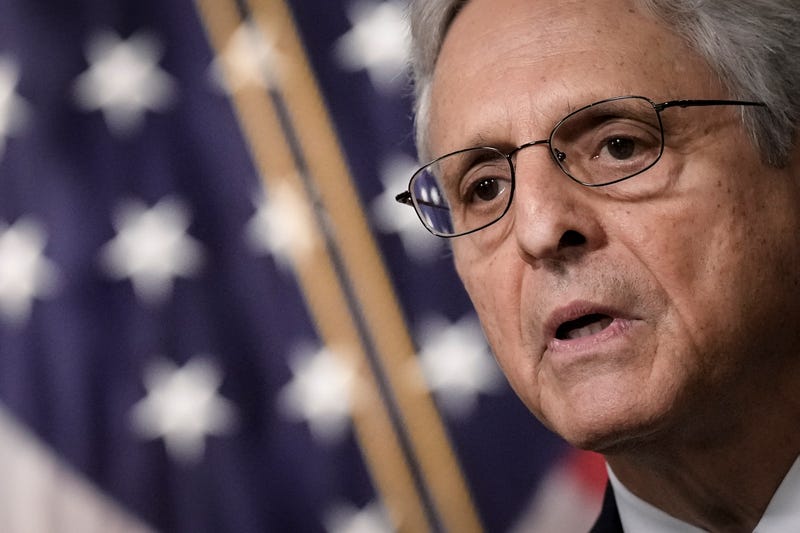
SAN FRANCISCO (KCBS RADIO) – Amid frequent criticism of the FBI's execution of a search warrant at his Florida residence earlier this week, former President Donald Trump ultimately has power over the document's release.
For more, stream KCBS Radio now.
Trump can agree to the Department of Justice's request to unseal the document in federal court, or he can block it. He could also release the warrant's contents on its own, and could have at any point since investigators handed him the document on Monday.
"Normally, if the target of a search opposes the motion to unseal, it's not going to be unsealed," Rory Little, a professor at UCSF's law school and a former federal prosecutor, explained to KCBS Radio's Patti Reising and Bret Burkhart during an interview on Thursday night.
U.S. Attorney General Merrick Garland said in a statement from the Department of Justice headquarters' briefing room on Thursday afternoon that prosecutors had moved to unseal a search warrant for Trump’s Mar-a-Lago estate.
Trump, who has equated the search political persecution and already fundraised off of it amid a cacophony of calls from his allies and supporters for federal officials to share more information about the investigation, can object in court to the Justice Department's motion.
"The target is sort of given the opportunity," Little added. "If he decides not to unseal it, then he can go on and continue to make unsupported allegations."
A "person familiar with the matter" told the Associated Press that the Justice Department issued a subpoena earlier this year, as well as that department and FBI investigators visited Trump's Florida estate earlier this year. Little said the preexisting subpoena would make the department’s warrant "a totally justified” one, but "the ball is in Trump's court" whether it gets released.
Garland said on Thursday that he personally ordered the warrant, adding that he couldn't otherwise discuss the investigation. Trump and his allies have baselessly claimed that investigators planted evidence at his home and that the probe is meant to harm his potential 2024 presidential election campaign. Garland said in the press conference that the Justice Department is "applying the law evenly without fear or favor."
The Washington Post reported on Thursday night, citing "people familiar with the investigation" into Trump’s handling of classified records recovered from Mar-a-Lago earlier this year, that the FBI sought "(classified) documents relating to nuclear weapons."
The New York Times later reported separately that, according to "one person briefed on the matter," the documents "related to some of the most highly classified programs run by the United States." The person told the paper that the FBI left behind a manifest of what investigators took from Trump's home, but the document would probably be heavily redacted if released to the public "to shield any classified material."
Yet the warrant and the manifest could still be released without redactions should Trump choose, on his own, to publicly share the documents' contents.
Trump has had the warrant and the manifest in his possession since Monday, and Little said the former president could "absolutely" either document.
"Instead, he's chosen to sort of offer these unsupported insinuations that he's making," Little said.
DOWNLOAD the Audacy App
SIGN UP and follow KCBS Radio
Facebook | Twitter | Instagram

